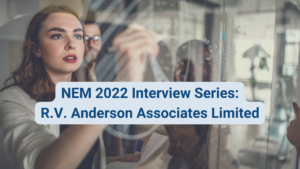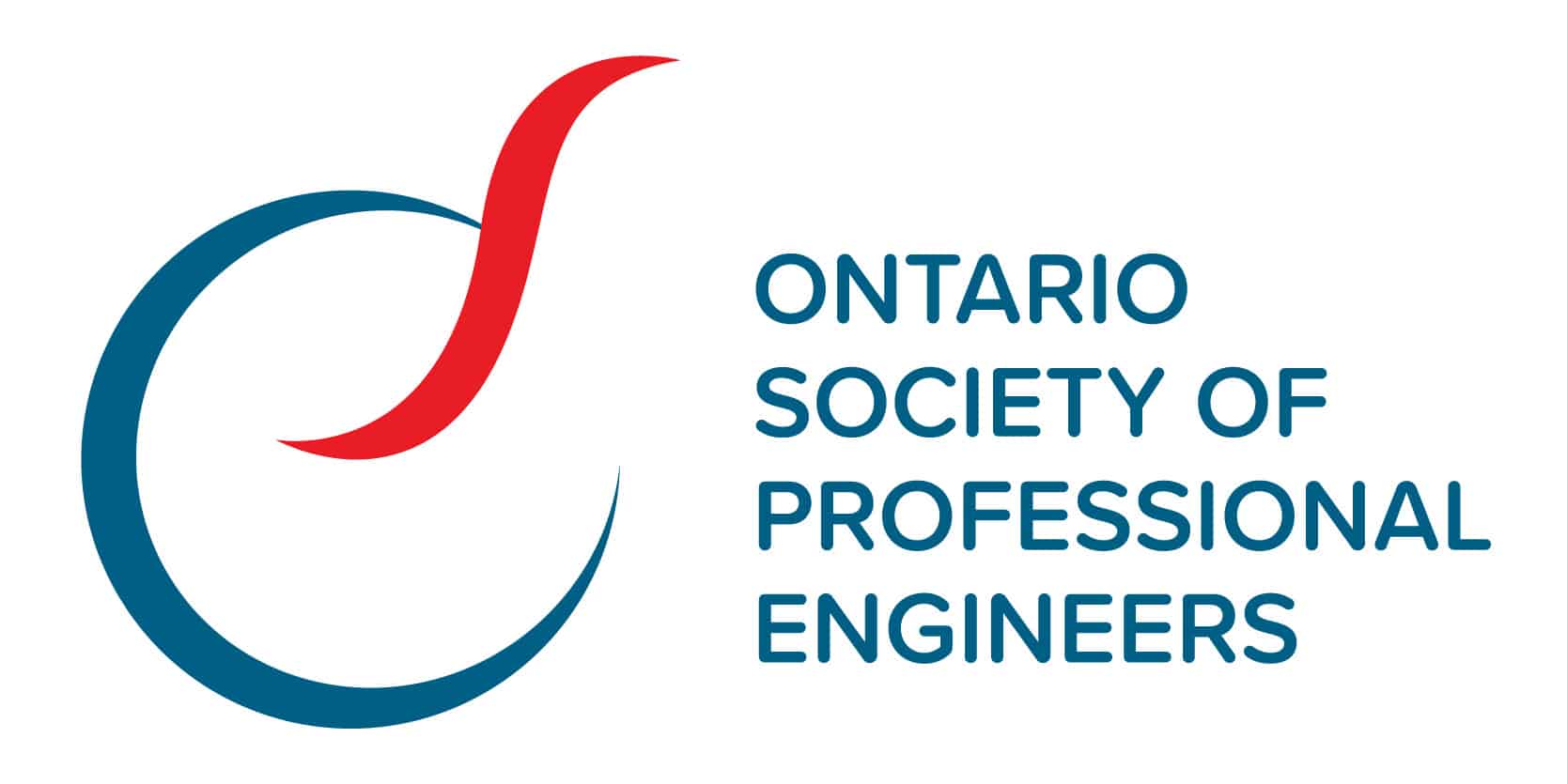
Leading up to National Engineering Month Ontario events, we are connecting with leaders in Ontario’s engineering community to talk about the future of engineering. This week I met with Harpreet Rai, who is a Senior Associate and Process Engineer at R.V. Anderson Associates Limited (RVA). What follows is a Q&A session about how consulting engineers work to continuously innovate in the areas of water and wastewater systems.
Q: Can you tell me a little bit about why National Engineering Month is important to you and the engineering profession overall?
Engineers are nation builders and we are very excited and passionate about what we do. We at RVA want to nurture that same excitement and passion in the next generation of engineers. We want the future generation to take an active interest in the engineering profession and consider it as an excellent career option.
Q: The theme for NEM 2022 is lifelong learning. What does the concept of lifelong learning mean to you?
Engineering is a practice where the standards and regulations are always evolving. We are living in the age of information and in this high-tech environment, there are new discoveries and ideas happening all the time that take us in new directions. These new discoveries get incorporated into policies and standards and trickle down to new engineering or improved engineering practices and tools. This constant innovation requires engineers to keep polishing their skills and keep abreast with the latest advances in the field. I’ve been in the industry for the last 30 years and I’m still learning new things every day. As the standard of delivery continuously changes, it also becomes more demanding and challenging, so engineers must embrace lifelong learning to stay relevant.
Q: Can you tell me a little bit more about the type of work that you do at RVA and the projects that you work on?
We work on municipal infrastructure and that includes water and wastewater facilities, urban development, transportation, and also several types of environmental services and all of the associated disciplines such as structural, electrical, and mechanical engineering. As a company, we pride ourselves on undertaking and delivering complex projects. As far as my area of work is concerned, I am a water and wastewater engineer and I help construct wastewater treatment plants and sewage treatment plants. Part of my job is to ensure that what goes out of the treatment plants is conducive to the health of the receiving water bodies like rivers, creeks, and lakes so that the water bodies in Canada are kept safe and secure. Running a treatment plant uses a lot of energy and this is always a part of our process is to minimize the energy usage at these plants.
Q: How has the engineering profession changed over the past five or ten years and how is RVA capitalizing on those changes?
Speaking from my perspective in water and wastewater treatment – we have seen more stringent regulations and standards come up in the last 5-to-10 years which have pushed the standards of drinking water quality to increase as new and more concerning contaminants are discovered in the water. For example, if you take the recent incidents of lead in water samples it begs the question of whether we should have lead pipes for water distribution and what are the allowable concentrations and long-term impacts? Every day we are finding new impacts of contaminants that trigger new regulations and I have seen this happening in wastewater since I came to Canada. These new regulations are pushing the existing systems and are requiring more advancements in technology. As a result, several new technologies have emerged in the last decade which has made the industry more aware and proactive on energy conservation, climate change, resilience, and overall environmental sustainability of infrastructure. We at RVA have quickly adapted to these changes by building on the skills required to integrate these changes into our culture and are well-positioned as a result.
Q: Are there any specific programs, initiatives, or outcomes happening at RVA that you want to tell me about?
One of the initiatives that we recently started is a wastewater training program for young professionals. We have a pretty large water and wastewater group here at RVA and we get young professionals and recent graduates that have studied the subjects related to water and wastewater engineering but find the applications to be challenging as they enter the workforce. The thought behind starting this training was to take young professionals through some of the more complex aspects of wastewater engineering by implementing training modules, discussions, and tests that ultimately lead to professional designations. These designations help students of the program acquire concrete skills that relate to projects they work on at the company, so they become more excited, motivated, and inspired about their work overall.
Q: What does the future of engineering look like and how does RVA fit into that?
Policies, standards, and regulations are changing more rapidly than ever before, so engineering practitioners not only need to be abreast with those changes but they also need to be able to adapt and learn the skills required to keep moving in the right direction. There is no room for complacency, so it’s critical that engineers keep their awareness and skill level up to speed. Continuous improvement is going to be the norm and with it comes the excitement of pushing the boundaries as engineers learn new skills and achieve new goals. This adaptation to change is inherently woven into the culture and philosophy at RVA and is what makes it such an exciting place to work at.
Q: Is there anything else that you want to share?
One quick word for the young professionals and budding professional minds out there. You have to be in love with what you do because you’ll be working for a major part of your life. Engineering is a highly creative field with far-reaching benefits for communities, societies, and the country as a whole. With its never-ending challenges, engineering is a great profession to be in, so I encourage you to explore engineering and become a part of this great profession.
National Engineering Month is Ontario’s engineering event of the year.
Learn to change the future of engineering – together. Attend National Engineering Month Ontario events. With bold topics, industry expertise, and diverse perspectives, you won’t want to miss it. To sign up for a #NEM2022 event, please visit our website.


